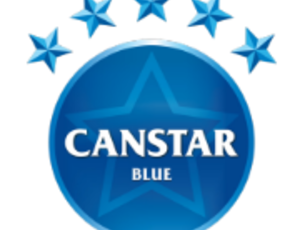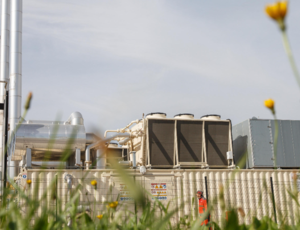As the cost of living continues to impact many Australians, a new survey commissioned by Veolia Australia New Zealand reveals that most people (79 per cent) would repair an item rather than replace it - and half (52 per cent) are willing to do it if it saves them money.
A nationally-representative YouGov survey of more than 1,000 Australians, conducted in August 2023, has found attitudes to repairing products took cost-cutting into consideration.
Veolia CEO Richard Kirkman says the survey showed people need to save at least $70 on average, to be willing to repair a product themselves.
“The willingness to repair items shows attitudes could be shifting away from a disposal mindset. This is positive, because if we want to achieve a circular economy, we need to be willing to treat resources differently by re-using, recycling, cleaning and de-polluting - rather than just consuming without an end of life solution in mind,” said Mr. Kirkman.
“It's this shift in thinking that's going to drive ecological transformation."
“Women and Gen Z respondents were most likely (24 per cent and 26 per cent, respectively) to repair things even if it saved them smaller amounts of money, like up to $20.”
The findings showed generations more likely to have a mortgage, like Gen X, were savvier about repairing things. Gen X and Baby Boomers are more likely than those younger (32% and 34% compared to Gen Z: 12% and Millennials: 22%), to say they would always be willing to repair an item rather than replace it, even if they didn’t save any money.
Sentiment around corporate responsibility was also tracked, with 3 in 5 Australians backing the idea that manufacturers should make spare parts for their products easily available (60 per cent), and nearly half of Aussies agreeing manufacturers intentionally giving products a limited shelf life (think batteries in phones) should be banned (47 per cent).
Mr Kirkman says proper consumer disposal of things like batteries is only one piece of the puzzle for recyclers and manufacturers.
“It’s great to see statistics about shelf life, where consumers are demanding manufacturers provide longer-lasting and quality items so they waste less over time,” said Mr. Kirkman.
“In order to boost consumer recycling rates of electrical, electronic equipment and other household items, Australia needs to move to essentially compel manufacturers to prioritise recyclability when they design things, so there’s less waste - and more recycling and reusing.”
Importantly, one-quarter of Australians surveyed backed the idea of building the cost of recycling and disposal into the cost of a product - 26 per cent of those surveyed - something Veolia believes will help the country achieve national waste and net zero targets.
“The sentiment confirms people are becoming more attuned to what we know in the recycling industry - that recycling costs should be factored into the price of a product by the manufacturer, since people are paying for that through general taxation anyway,” Mr. Kirkman said.
Additionally, 88 per cent of Australians claim they’ve repaired something, men (91 per cent) are slightly more likely than women (86 per cent) to have repaired something, while Baby Boomers (92 per cent) are more likely than Gen Z (82 per cent) and Millennials (86 per cent) to have repaired something.
Of people who have repaired items, almost two-thirds (58 per cent) said their experience in fixing something impacted the buying recommendations they’d give their mates, with men (64 per cent) more likely than women (51 per cent) to make product recommendations if they’ve been able to repair those items. And 82 per cent said they used social media to help them repair things around the home - millennials leading the way there (92 per cent, followed by Gen Z at 87 per cent).
The survey also found about half of Aussies would repair rather than replace if they knew how;
- their favourite item of clothing (53 per cent);
- washing machine (49 per cent);
- laptop (47 per cent); and
- Gen Z led the way for gadget repairs, with 58 per cent saying they’d repair a laptop and 57 per cent saying they’d fix their phone if it broke if they knew how.
Mr Kirkman said the statistics were important for consumer monitoring, where Veolia provides B2B services that aren’t direct to the customers, though ultimately it’s customers’ recycling attitudes and efforts that can cause landfills to be full of improperly-disposed items, such as batteries.
“Improper disposal of batteries is just one of the major issues encountered by Veolia, which can sometimes cause fires at our depots, and this serious hazard can be avoided by people recycling correctly.”
Veolia's household recycling facilities in Australia receive and process more than 160,000 tonnes per year of recyclable material.
“Australia landfills 27 million tonnes of waste every year. We are in a climate crisis with droughts, floods and natural disasters growing - and Veolia’s aim is to reduce climate emissions and allow us to recover energy from waste we can't recycle by using technology,” said Mr. Kirkman. ...
Click for more information on types of Veolia recycling, including:
- Food Organics and Garden Organics
- Plastics
- Paper and cardboard
- Electronic waste
Further Reading
MEDIA CONTACT
Valeria Cheglov, Head of Communications and Public Policy | +61 0438 494 351| [email protected]
Veolia Group aims to become the benchmark company for ecological transformation. Present on five continents with nearly 220,000 employees, the Group designs and deploys useful, practical solutions for the management of water, waste and energy that are contributing to a radical turnaround of the current situation. Through its three complementary activities, Veolia helps to develop access to resources, to preserve available resources and to renew them. In 2022, the Veolia group provided 111 million inhabitants with drinking water and 97 million with sanitation, produced nearly 44 million megawatt hours and recovered 61 million tonnes of waste. Veolia Environment (Paris Euronext: VIE) achieved consolidated revenue of 42.885 billion euros in 2022. www.veolia.com/anz





